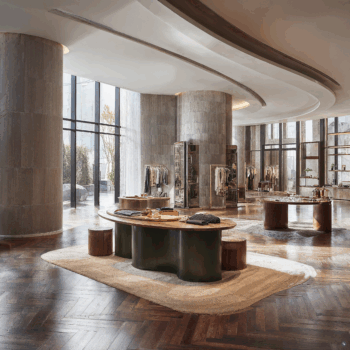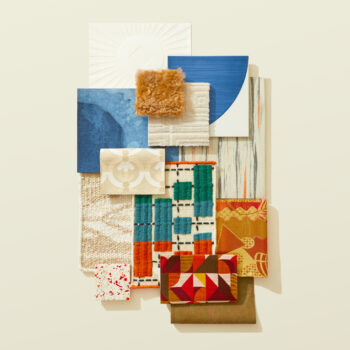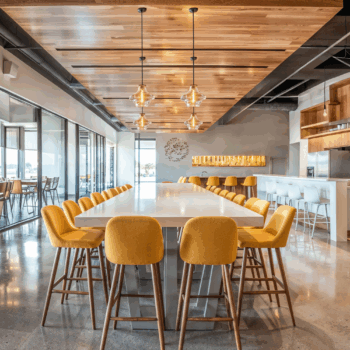
Born out of a desire for progress and beauty in post-World War I Parisian Art Deco design combined the elegance of traditional craftsmanship with the forward-thinking ethos of the Machine Age. The Parisian iteration of this style emphasized harmony between form and ornamentation—balancing geometric motifs with luxurious finishes like marble, bronze, and lacquered wood. Architects and designers like Émile-Jacques Ruhlmann and Pierre Chareau helped define a new visual language rooted in symmetry, precision, and visual rhythm.
Parisian Art Deco interiors radiate refined glamour through jewel-toned velvets, brass inlays, sculptural lighting, and monochromatic stone flooring. Mirrored surfaces and repetitive forms offer spatial clarity and drama. Today, this legacy continues to inspire both restoration and innovation—seen in hospitality settings, retail environments, and high-end residences where elegance meets functionality.
The Core Principles of Parisian Art Deco Design
1.) Sculptural Geometry
Bold lines, faceted surfaces, and layered motifs define interiors and exteriors, balancing symmetry with decorative intent.
2. ) Rich, High-Gloss Materials
Lacquered wood, polished brass, marble, and velvet infuse spaces with tactile luxury and visual depth.
3.) Ornamentation with Precision
Intricate ironwork, inlaid stone, and streamlined moldings bring craftsmanship to the forefront—never excessive, always intentional.
4.) Refined Color Palettes
Deep navy, burgundy, ivory, black, and gold dominate, often layered with monochromatic or mirrored surfaces for contrast.
5.) Balance of Form and Function
Art Deco favors practical elegance—built-ins, rounded corners, and integrated lighting create timelessly usable space.
Parisian Art Deco in Practice
Soothing Elegance in Healthcare Spaces
In healthcare environments, Art Deco brings a sense of calm and dignity through curved partitions, symmetrical layouts, and warm neutral tones accented with brass or stone.
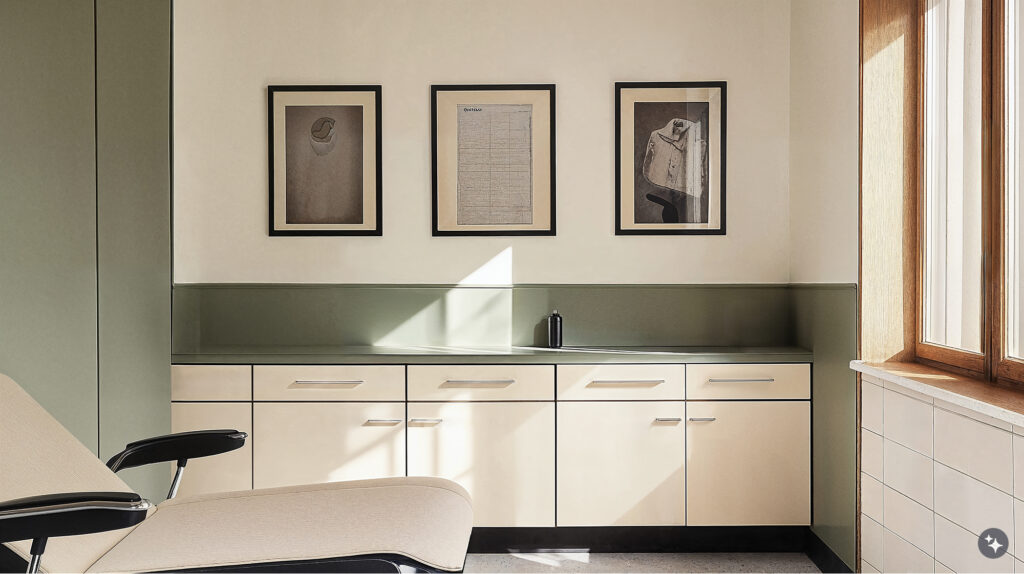
Workspaces with Architectural Clarity
Art Deco office interiors use repetitive geometries, textured stone flooring, and metal-framed glass walls to create spaces that feel both focused and refined.
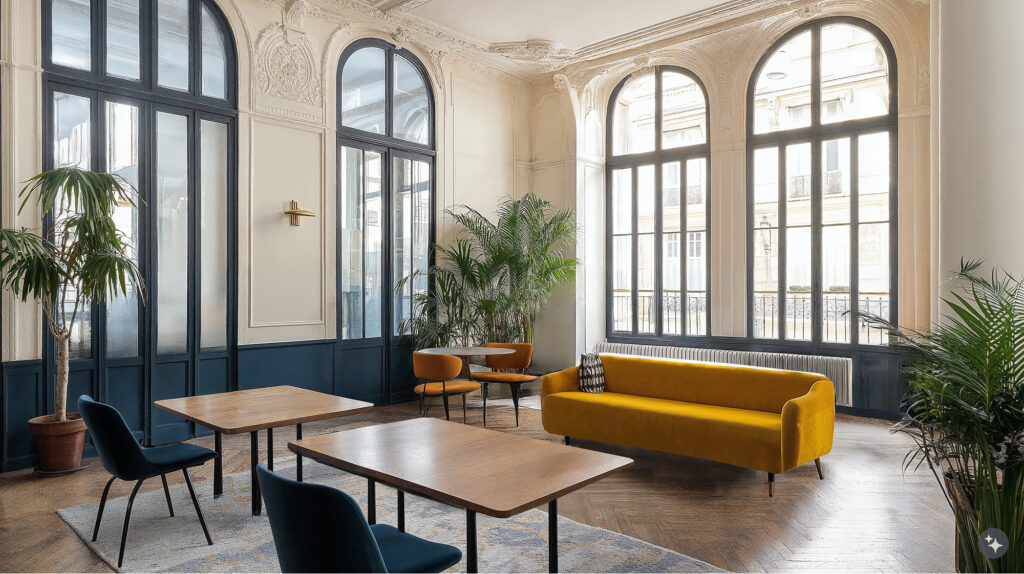
Educational Settings with Modern Heritage
Libraries and staff offices borrow from Deco’s emphasis on proportion and light—incorporating tiered lighting, sculptural furniture, and clean, symmetrical circulation.
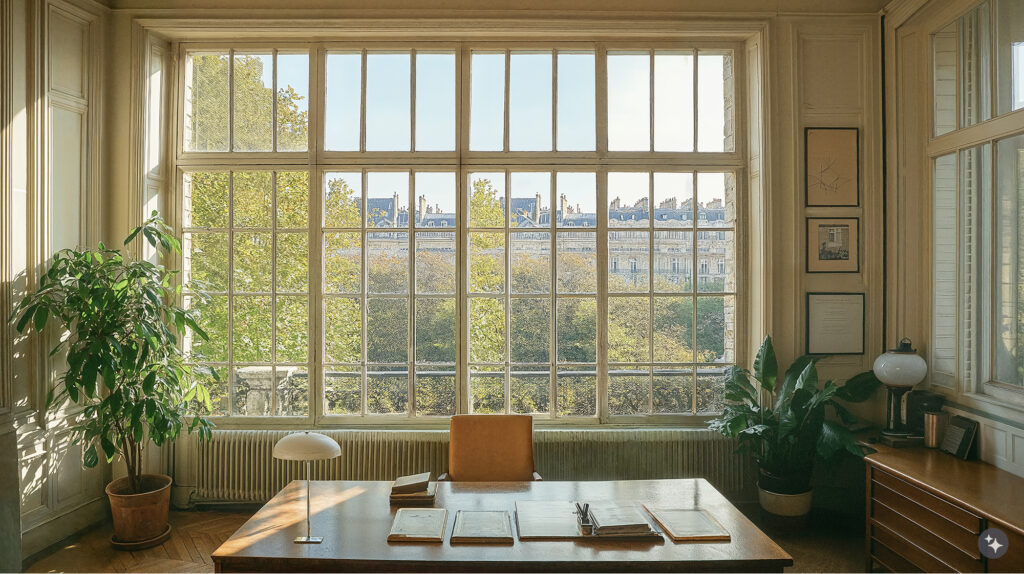
Hospitality with Iconic Sophistication
Restaurants and lounges evoke 1920s Paris with plush seating, inlaid flooring, and decorative wall sconces that blend vintage character with modern comfort.
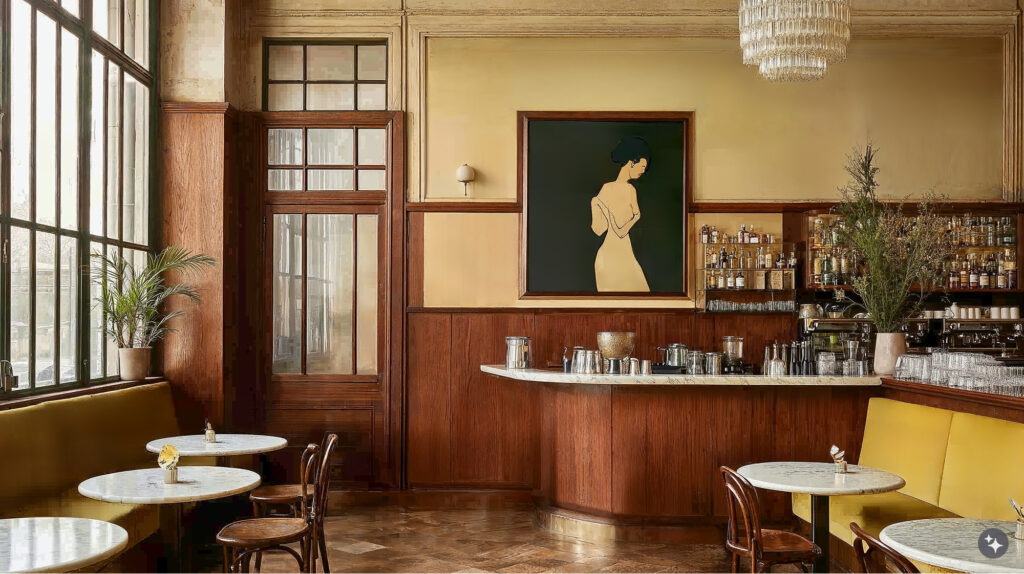
Retail That Shines with Precision
Luxury boutiques and gallery-like displays use glossy surfaces, black-and-gold palettes, and fluted detailing to elevate product presentation with drama and restraint.
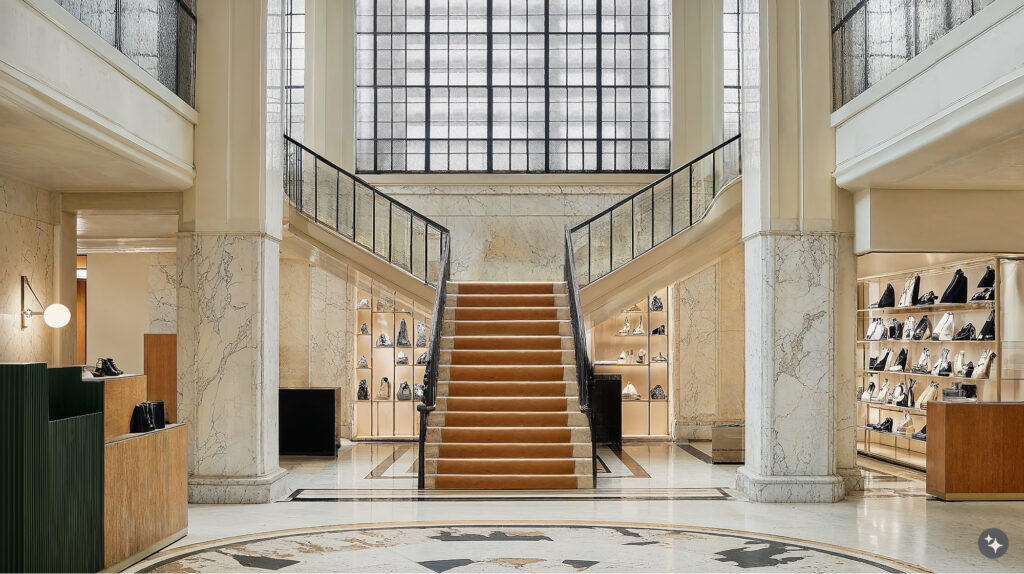
Transit Spaces with Elegance and Efficiency
Train stations and airport lounges echo Art Deco grandeur through columned volumes, indirect lighting, and patterned tile flooring that balance circulation with aesthetic impact.
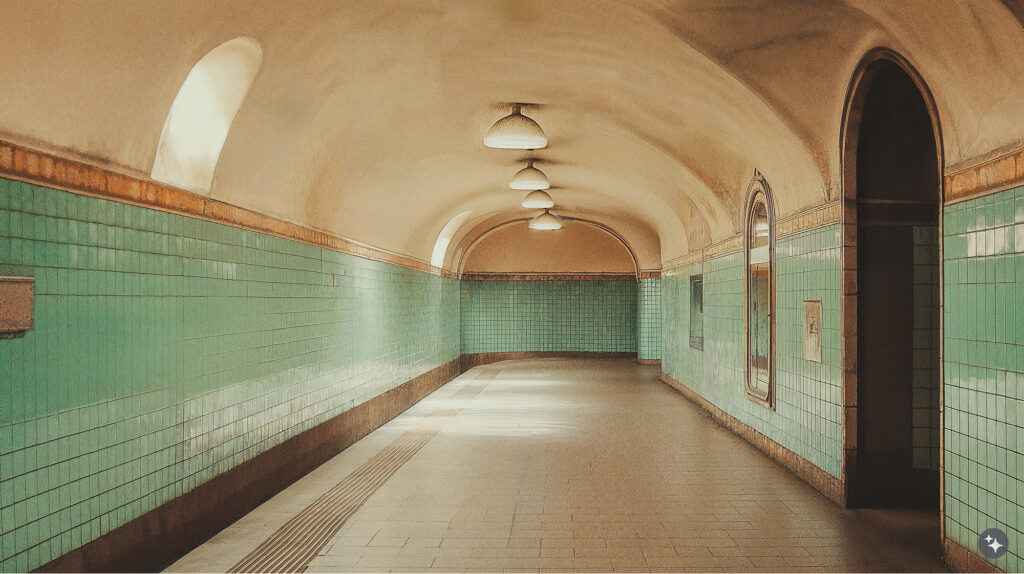
Residential Spaces with Lasting Style
Homes reinterpret Parisian Art Deco through chevron floors, lacquered millwork, and sculptural lighting—creating spaces that feel both elegant and livable.
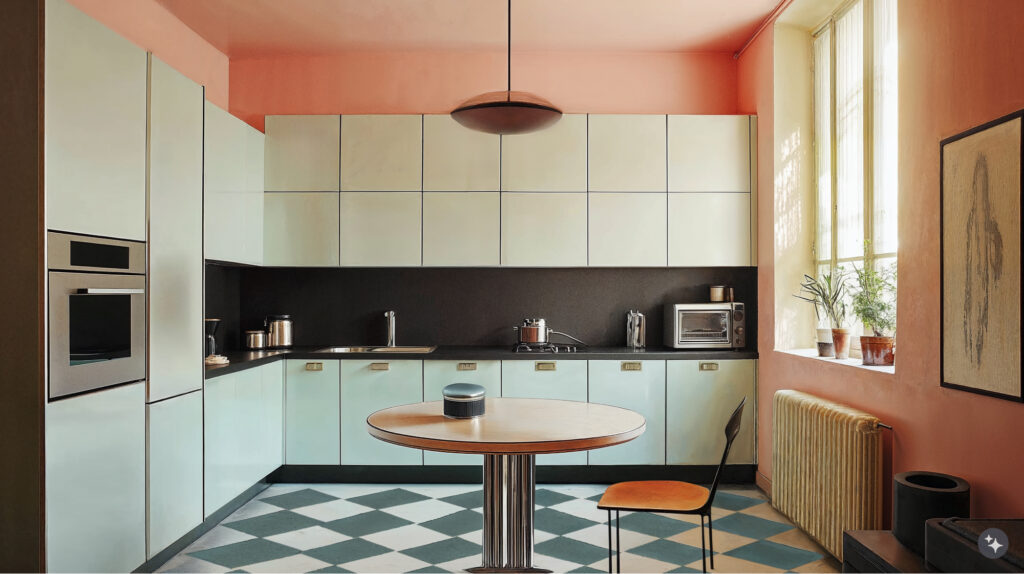
Parisian Art Deco design is a study in contrasts: opulent yet orderly, expressive yet restrained. As a style rooted in both the past and the future, it continues to shape the way we design with intention and beauty. Whether through subtle material palettes or grand architectural gestures, Parisian Art Deco offers a refined lens through which to create timeless, modern environments.
Looking for concepts that incorporate natural elements? Traditional Japanese Design provides a perfect blend of organic materials and mindful aesthetics.





